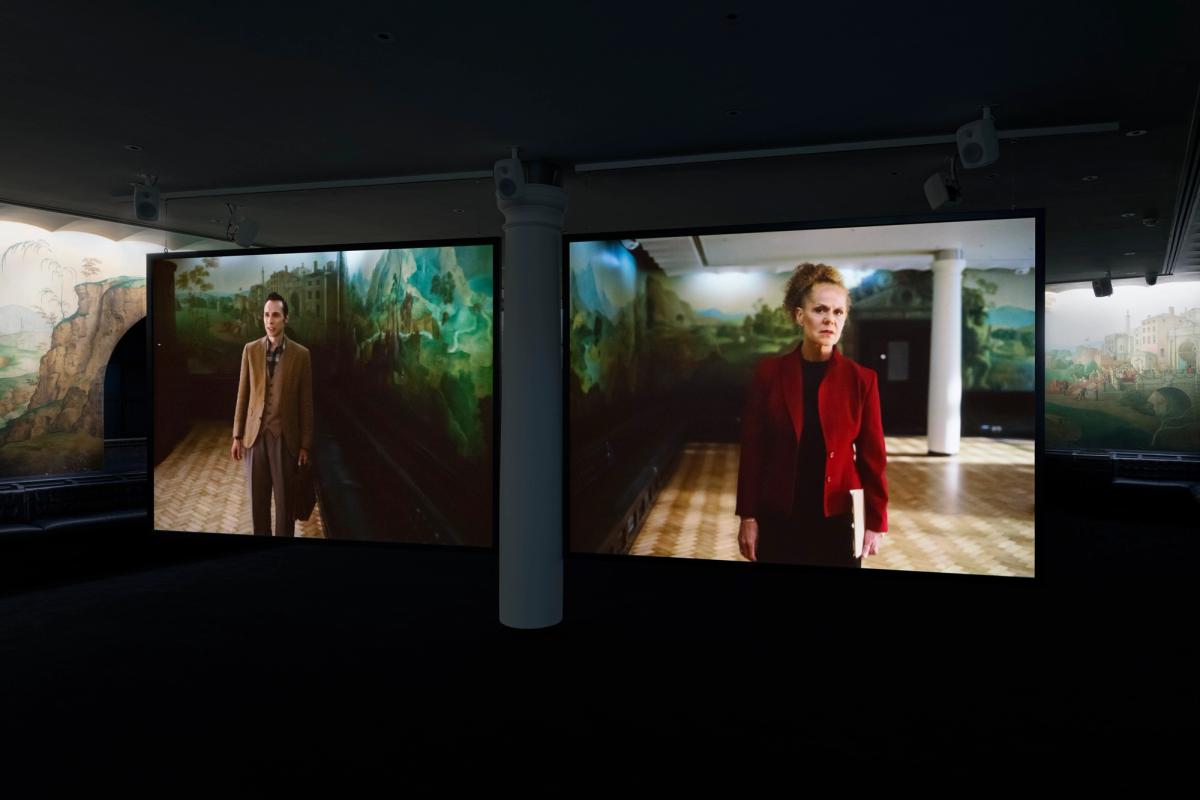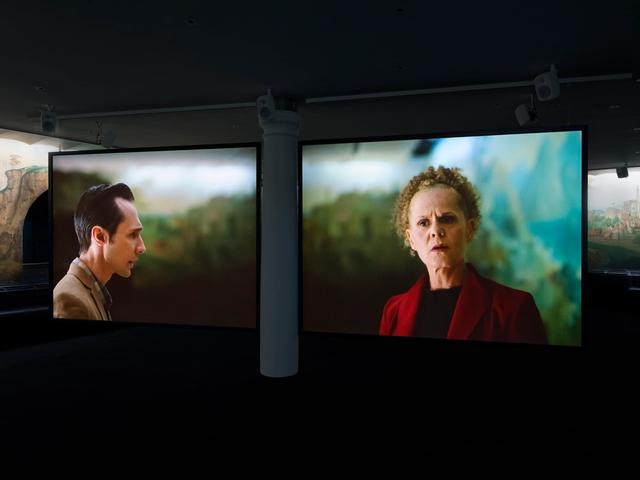Tate Britain director Alex Farquharson admits that presenting the racist Rex Whistler mural in what until 2020 was the gallery restaurant has been “one of the most challenging issues I have faced”.
Farquharson tells The Art Newspaper: “It represented an extraordinary quandary. Key aspects of Tate’s mission are in direct conflict—providing inclusivity to welcome our visitors and as custodian of an immovable, site-specific artwork.”
The mural, entitled The Expedition in Pursuit of Rare Meats, is Whistler’s largest artwork, painted when the artist was just 21. But the racist passages create disturbing problems. It is not a formally Tate-accessioned artwork, but is part of an architecturally listed building.
The former restaurant will reopen tomorrow as a gallery space, with a commissioned work by Keith Piper. He has produced a two-screen video, entitled Viva Voce (Latin for “by word of mouth”), which revolves around an imaginary conversation between Whistler (1905-44) and “a professor”.
Whistler’s mural, completed in 1927, includes two vignettes which are now regarded as racist. As Tate puts it, they are “derogatory and distressing imagery of a Black child being kidnapped from his mother and enslaved, and caricatures of Chinese figures”.
The figures represent a tiny part of the mural's surface and until a decade ago few visitors spotted them, but they are nevertheless highly troubling. As Farquharson says, “once I noticed them, I couldn’t unnotice them”.
Tate Britain closed to visitors in March 2020 because of Covid, and the Black Lives Matter movement grew in strength after the murder of George Floyd in May. In December 2020 Tate decided to hold a consultation on the mural and its presentation.
This consultation, headed by five co-chairs, proved stressful. David Dibosa, from the University of the Arts London, admitted that discussions with those consulted had “not been easy”. Mark Miller, Tate’s head of learning, described them as “difficult conversations”. And Amia Srinivasan, from the University of Oxford, spoke of “deep disagreement” in the conversations.
Their decision, announced in February 2022, was to commission a “site-specific installation”. Tate’s trustees noted that it would be opened “by the winter” (2022-23). Progress again was slow, and the commissioning of Keith Piper was only announced in December 2022. At that point it was stated that the room would be reopened in autumn 2023, a date which later slipped to March 2024.
Piper, who teaches at London’s Middlesex University, was born in Malta to parents of African-Caribbean heritage (his father came from Antigua). His work is multi-media.
Viva Voce is a 20-minute video which shows an actor (Ian Pink) playing Whistler who responds to an imaginary interviewer, Professor Shepherd (Ellen O’Grady), who asks him about the mural. Initially it is all polite, but the professor becomes increasingly concerned about the racist elements.
The original mural remains still fully visible, including the offending passages. But in the partially darkened room, it is not as visible as it was when it was a restaurant.
How does Farquharson believe that Whistler would react to Piper’s film, if he was resurrected today? “He would take out his paintbrush, to paint over the passages. But only the artist can do that.”
As Farquharson admits, there were a range of responses to the consultation: “Some wanted to shut the door, perhaps even destroying the mural. Others felt it should still be a restaurant, since that is what the artist made it for. There is no right answer.”
Tate’s ultimate decision was to commission a contemporary artist to provide a contemporary view. Farquharson says Piper’s work “provides an opportunity to learn and talk about the most troubling aspect of our history, whose legacies impact on us today.”
The room will be open to visitors in the same way as the other galleries. As for the film, it has not been acquired and accessioned by the gallery, and belongs to Piper. It could possibly be acquired in the future.
Initially Piper’s video will be presented for at least a year, although this period could be extended depending on how visitors react, Farquharson says.
• Tune in to this week's episode of our The Week in Art podcast to hear Keith Piper talk about Viva Voce. Out on Friday.



